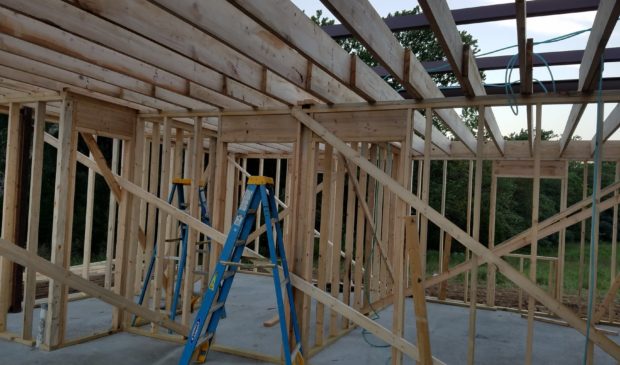City manager presents options for a new land development code
Monday, March 18, 2019 by
Jack Craver City Manager Spencer Cronk released a memo on Friday proposing the first steps of a new process to rewrite the land development code. The memo comes seven months after City Council voted unanimously to suspend its last land use code rewrite effort, CodeNEXT, and instructed Cronk to propose a new process.
Cronk’s memo outlines five key questions on which he wants City Council members to provide input before city staff begins drafting changes to the code.
The first question asks whether staff should simply make changes to the existing code, or pursue an entirely new code. And if the latter, should Council do the text of the code and the zoning map concurrently or do the text and craft a zoning map separately?
The other four questions relate to specific land use issues: compatibility standards, parking requirements, housing capacity, and so-called “missing middle” types of housing such as triplexes, fourplexes and townhomes.
On those four issues, Cronk asks Council members to choose one of three options. The first is the status quo, or the policy that exists in the current code. The second is something akin to what was presented in the final draft of CodeNEXT.
The third option is to support an even more aggressive change, such as significantly reducing parking requirements and compatibility standards and providing zoning that will allow far more housing in the urban core, such as through increased missing middle housing.
One challenge for the third option is that it is not well-defined. A majority of Council members may agree that the city should pursue aggressive land use changes, but they may not agree on just how aggressive the change should be.
The memo included appendices providing further explanation of what the more aggressive option might look like. Parking requirements, for instance, could range from significant reductions based on land use to complete elimination of parking requirements citywide or even the creation of “parking maximums” that prohibit developers from constructing more than a certain amount of parking on a property.
Although Council was unanimous in its decision to scrap CodeNEXT, there was plenty of disagreement about what the problem was with the six-year effort to overhaul the code.
Some Council members said the proposal didn’t facilitate enough new housing in the urban core, which they believe is needed to ease cost pressures, reduce sprawl and facilitate mass transit. Others said the opposite, echoing complaints from traditional neighborhood associations that said CodeNEXT would threaten the character of single-family neighborhoods and encourage development that would exacerbate the affordability crisis. Meanwhile, Mayor Steve Adler argued for abandoning CodeNEXT, not due so much to the content of the proposal but because of the division the debate surrounding it had caused in the community.
The election offered a boost to those who support more aggressive land use changes. Laura Morrison, a longtime supporter of preserving single-family neighborhoods, made opposition to CodeNEXT central to her campaign for mayor but lost in a landslide to Adler. Meanwhile, skeptics of density lost a key supporter with the retirement of Council Member Ora Houston, whose East Austin district is now represented by Natasha Harper-Madison, an outspoken advocate for increased housing supply and transit-oriented development.
Whatever policy guidance Council provides, Cronk said that city staff will strive to use plain, transparent language when discussing the proposed changes and not shy away from addressing the “difficult issues” that generate the most controversy. He also said that staff should learn from the past and acknowledge “that our historical land use policies have not benefited all communities.”
Cronk also cautioned that improving the land development code will not be a panacea for the city’s problems:
“We have significant challenges in our City, but revisions to the Land Development Code alone will not solve long-standing issues regarding gentrification, equity, sustainability, affordability, and mobility. In my experience, land development codes enable communities to create an environment that can address these concerns. Land development codes are one tool in a versatile toolbox of resources and must be used in concert with complementary programs, services, and community resources.”
Cronk will present the memo to Council for discussion at the Council work session on March 26.
The Austin Monitor’s work is made possible by donations from the community. Though our reporting covers donors from time to time, we are careful to keep business and editorial efforts separate while maintaining transparency. A complete list of donors is available here, and our code of ethics is explained here.
You're a community leader
And we’re honored you look to us for serious, in-depth news. You know a strong community needs local and dedicated watchdog reporting. We’re here for you and that won’t change. Now will you take the powerful next step and support our nonprofit news organization?






